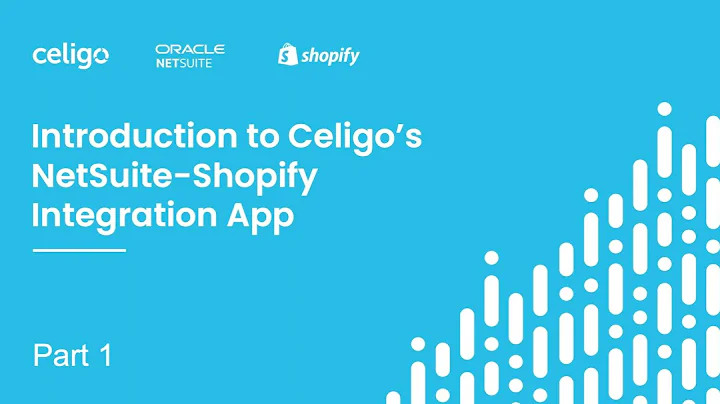Choosing the Best E-commerce Platform for Your Business
Table of Contents
- Introduction
- Shopify
- Pros of Shopify
- Cons of Shopify
- Suitable for What Types of Businesses?
- BigCommerce
- Pros of BigCommerce
- Cons of BigCommerce
- Suitable for What Types of Businesses?
- Magento
- Pros of Magento
- Cons of Magento
- Suitable for What Types of Businesses?
- Other E-commerce Platforms
- Conclusion
Article
Introduction
In today's digital age, having an e-commerce website is crucial for businesses looking to expand their reach and increase sales. Choosing the right e-commerce platform is a critical decision that can impact the success of your online business. In this article, we will explore three popular e-commerce platforms: Shopify, BigCommerce, and Magento. We will discuss the pros and cons of each platform and determine what types of businesses they are most suitable for.
Shopify
Shopify is one of the most popular e-commerce platforms available today. It is known for its ease of use and user-friendly interface, making it ideal for beginners or small businesses with limited technical knowledge. Some of the pros of using Shopify include:
Pros of Shopify
- Easy to set up and launch a website, even with minimal technical knowledge.
- Offers a wide range of beautiful themes, allowing you to customize the look and feel of your website.
- Built-in blogging feature for SEO optimization.
- Relatively low cost compared to other platforms.
- Trusted by both small and large businesses.
Despite its advantages, Shopify does have some limitations that may affect businesses as they grow:
Cons of Shopify
- Limited customization options for advanced functionalities and plugins.
- Restrictions on the number of products that can be listed.
- Additional costs for plugins and apps that are essential for scaling your business.
- Processing fees for every transaction made on your website.
Shopify is suitable for small businesses, startups, and entrepreneurs who want to quickly set up an online store without extensive technical knowledge. It is an excellent choice for businesses with a limited budget and those not planning for significant customizations or expansions in the future.
BigCommerce
BigCommerce is another popular e-commerce platform that offers a balance between ease of use and customization options. It has several advantages over Shopify when it comes to functionalities and scalability. Consider the following pros of using BigCommerce:
Pros of BigCommerce
- Out-of-the-box capabilities without the need for extensive plugins.
- More customization options and flexibility compared to Shopify.
- Suitable for businesses looking to scale beyond the $500,000 revenue mark.
- Offers a range of built-in features for advanced functionalities.
While BigCommerce offers more customization options compared to Shopify, there are still some drawbacks to consider:
Cons of BigCommerce
- Themes may lack uniqueness, requiring coding and design knowledge for a fully customized website.
- Higher costs compared to Shopify, with starting prices around $500-700 per month.
- No built-in hosting, requiring the use of third-party hosting providers.
BigCommerce is an excellent choice for businesses that have larger budgets, a development team, and a desire to scale quickly. It is a platform that caters to businesses with expanding product catalogs and the need for more advanced custom features.
Magento
Magento is a highly flexible and customizable e-commerce platform favored by technical teams and developers. It offers the most extensive range of customization options and is capable of building highly complex websites. Consider the following advantages of using Magento:
Pros of Magento
- Unparalleled flexibility and customization options.
- Ideal for businesses with specific and unique requirements.
- Used by many well-established and large companies.
- Highly scalable and capable of handling significant growth.
However, using Magento also comes with some challenges:
Cons of Magento
- Higher costs compared to Shopify and BigCommerce, with starting prices around $500-700 per month.
- Requires technical knowledge and expertise.
- No built-in hosting, necessitating the use of third-party hosting providers.
Magento is suitable for businesses with the budget and resources to invest in a highly customized and intricate e-commerce solution. It is an ideal choice for businesses with complex product catalogs, unique requirements, and a technical team capable of managing and implementing custom features.
Other E-commerce Platforms
Aside from Shopify, BigCommerce, and Magento, there are other e-commerce platforms available, such as WooCommerce, Squarespace, and Wix. However, these platforms may have limitations in terms of scalability, customization options, and functionality. For example, WooCommerce, while built on the popular WordPress platform, can be challenging to set up and lacks some essential features out-of-the-box.
It is essential to thoroughly research and consider the specific needs of your business before choosing an e-commerce platform. Each platform has its own strengths and limitations, so it is crucial to match your requirements with the right platform.
Conclusion
Selecting the appropriate e-commerce platform is a significant decision that can impact the growth and success of your online business. Shopify, BigCommerce, and Magento are three popular options in the market, each catering to different types of businesses. Consider your budget, technical knowledge, customization needs, and scalability requirements when making a decision. Remember to weigh the pros and cons of each platform to find the best fit for your business.


















